 Michelle Orange
Michelle Orange
Meta-March: director Greta Gerwig offers her take on the
Alcott novel.
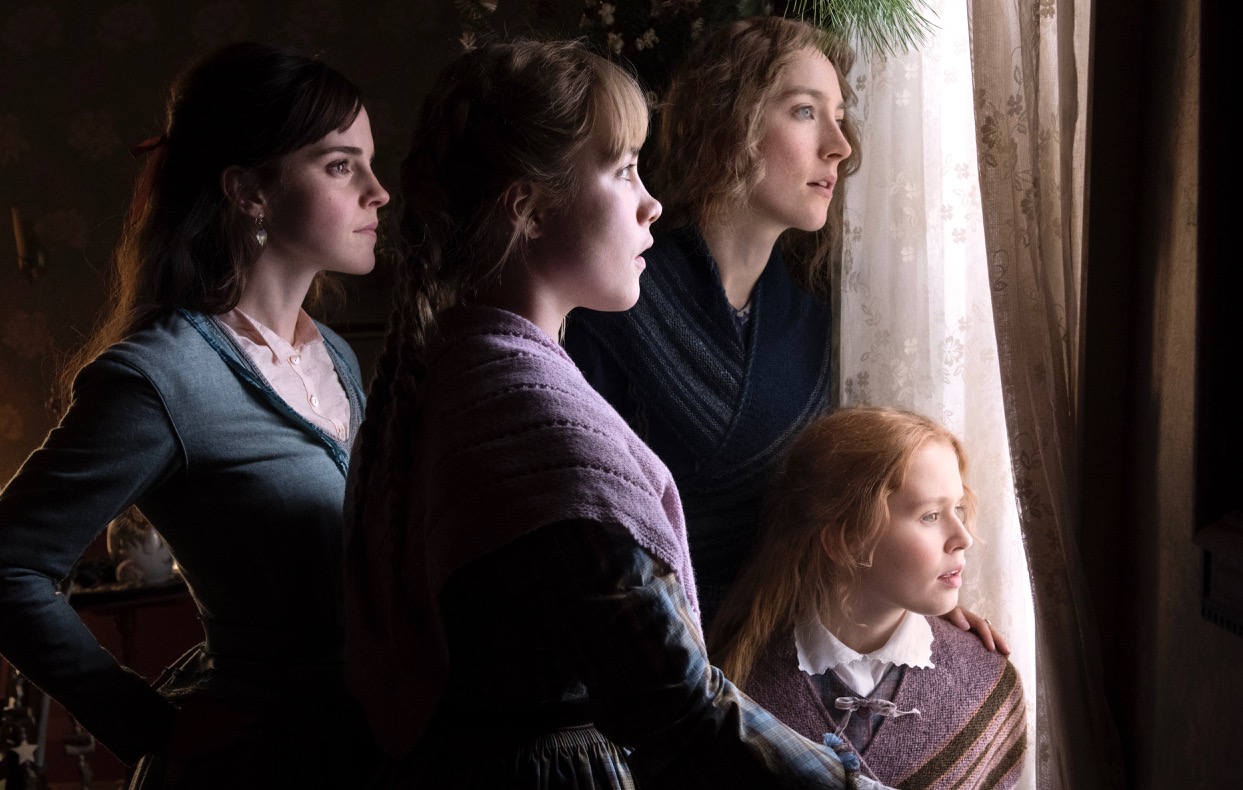
Emma Watson as Meg, Saoirse Ronan as Jo, Eliza Scanlen as Beth, and Florence Pugh as Amy in Little Women. Photo: Wilson Webb. © 2019 CTMG, Inc. All rights reserved.
Little Women, written and directed by Greta Gerwig, now playing
• • •
No doubt Greta Gerwig had heard the question before: Why another Little Women, and why now? When it came up during a post-screening panel in late 2019, a moment of swagger (“ ’Cause, did you see the movie?” Gerwig sighed, waving black fingernails) gave way to a stump speech so earnest and on-brand it might have found a place in her fond, unruly adaptation of Louisa May Alcott’s 1868 novel about the March sisters of Concord, Massachusetts, and the Marmee who loved them. Citing a string of female artists and thinkers, from Simone de Beauvoir to Patti Smith, who have claimed Little Women as their own, Gerwig made her case: “I feel like there’s a straight line from what [Alcott] did to what I’m able to do now, and I felt like I wanted to make a movie that answers the call to authorship, and that says you can write it down, and it counts, and it counts for something. And I felt like I wanted to make it big . . . I felt like it was an American classic epic feminist tale, and I felt like it could be big.”
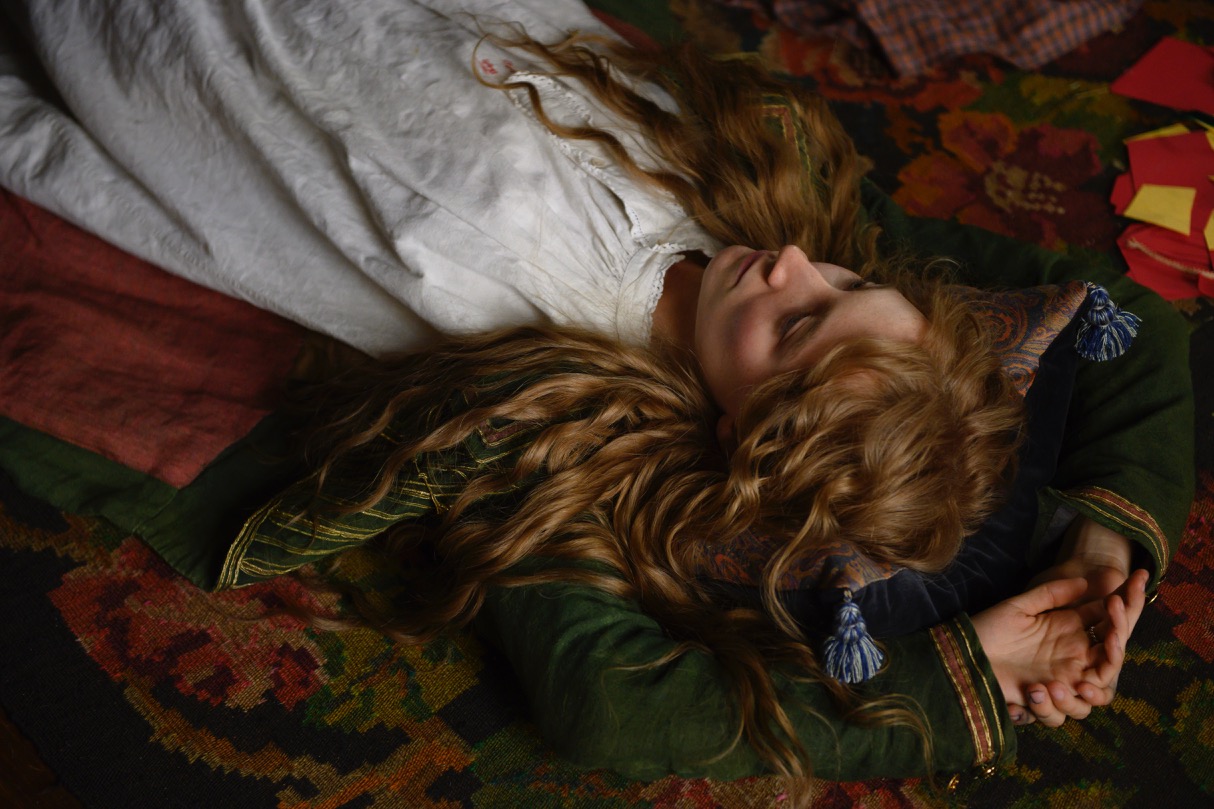
Saoirse Ronan as Jo in Little Women. Photo: Wilson Webb. © 2019 CTMG, Inc. All rights reserved.
For Gerwig, making it big involved a $40 million budget, shooting on 35mm film near the actual Alcott homestead, and hiring Alexandre Desplat to fashion one more aching, prestige score. It required a marquee cast that includes her Lady Bird star Saoirse Ronan as Jo March, the novel’s aspiring writer and barreling proto-tomboy; Meryl Streep as imperious, archaic, mostly correct Aunt March; Laura Dern as Marmee, the remote angel of the house; and Timothée Chalamet as Laurie, the rich, cloistered neighbor boy and would-be March sister. More than all of that, the bigness of this Little Women would rest on the writer-director’s interpretation of the novel, the extent to which she could finagle from a deceptively wily text about freedom and limits the American classic epic feminist tale Gerwig believes it to be.
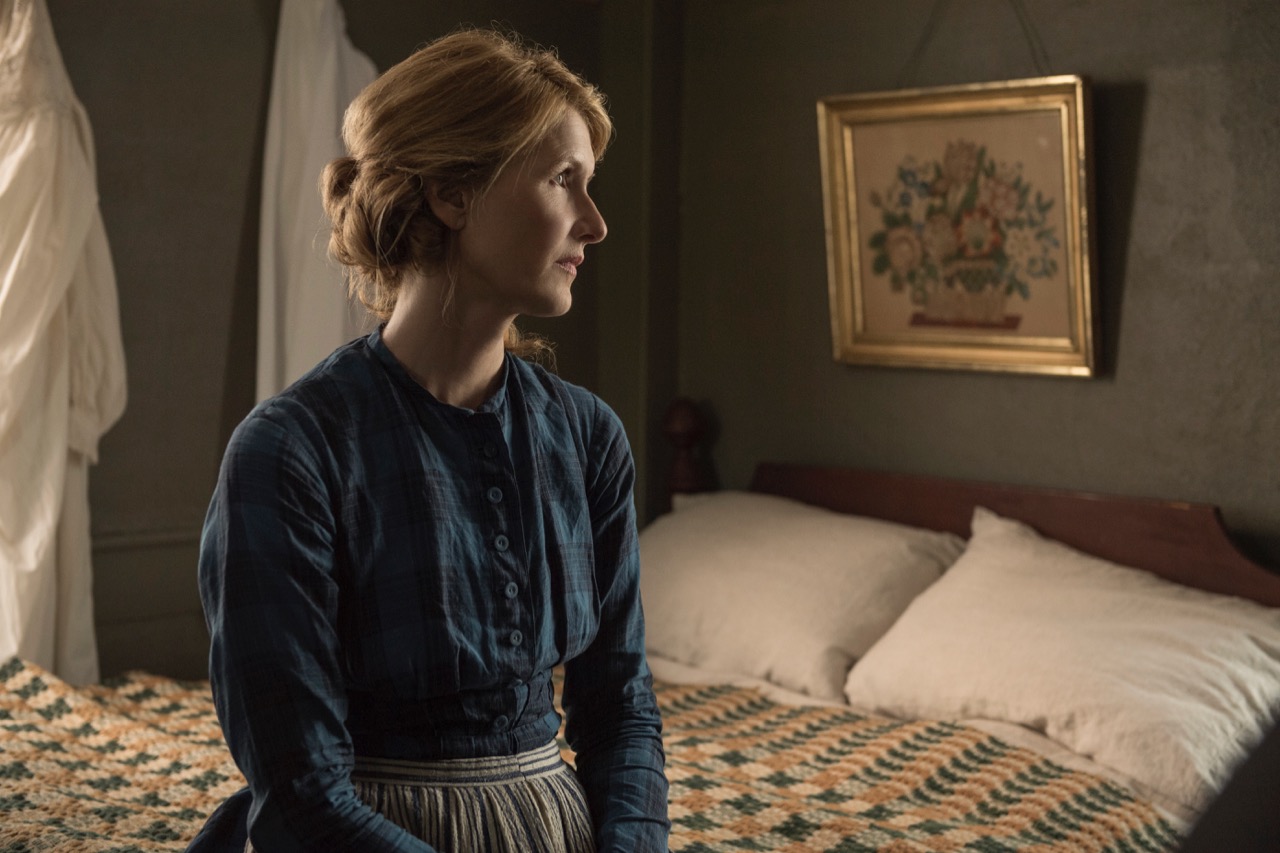
Laura Dern as Marmee in Little Women. Photo: Wilson Webb. © 2019 CTMG, Inc. All rights reserved.
In this Gerwig enters into a separate tradition: that of extracting from obstinate source material something a little more straightforward. Divided into two sections, the second of which Alcott wrote after the clamorous reception of the first, Little Women accommodates a multitude of readings. Staying true to the text has meant different things at different times. Gillian Armstrong’s luminous 1994 adaptation, the first since Mervyn LeRoy’s in 1949 and the feminist movement of the 1970s, asserts iconoclastic Jo as the story’s narrator and heroine-in-chief. Gerwig goes further, incorporating extra-textual elements and conflating Jo and Alcott in explicit, meta-narrative terms.
If the result is rarely less than pleasing, Gerwig’s interventions have an inevitable quality. They operate in service of peak timeliness, and at the expense of the book’s rich, inconvenient tangle of ideas about how and what a woman should be. In the name of freeing the novel’s true spirit, she favors those elements compatible with the modern grammar of female agency, and which affirm our obsession with individualism, self-expression, and relevance itself. “Own your story,” the movie’s tagline, is both trendy exhortation and a nod to those fans for whom Little Women has always been whatever they needed it to be. Watching Gerwig labor to elide and augment her source—this version remixes the timeline, alternating between a stonewashed, adult “present” and scenes from the sisters’ honey-toned childhood—it seemed to me the story Alcott had to be convinced by her editor to write would never be more radical than it was in its own time.
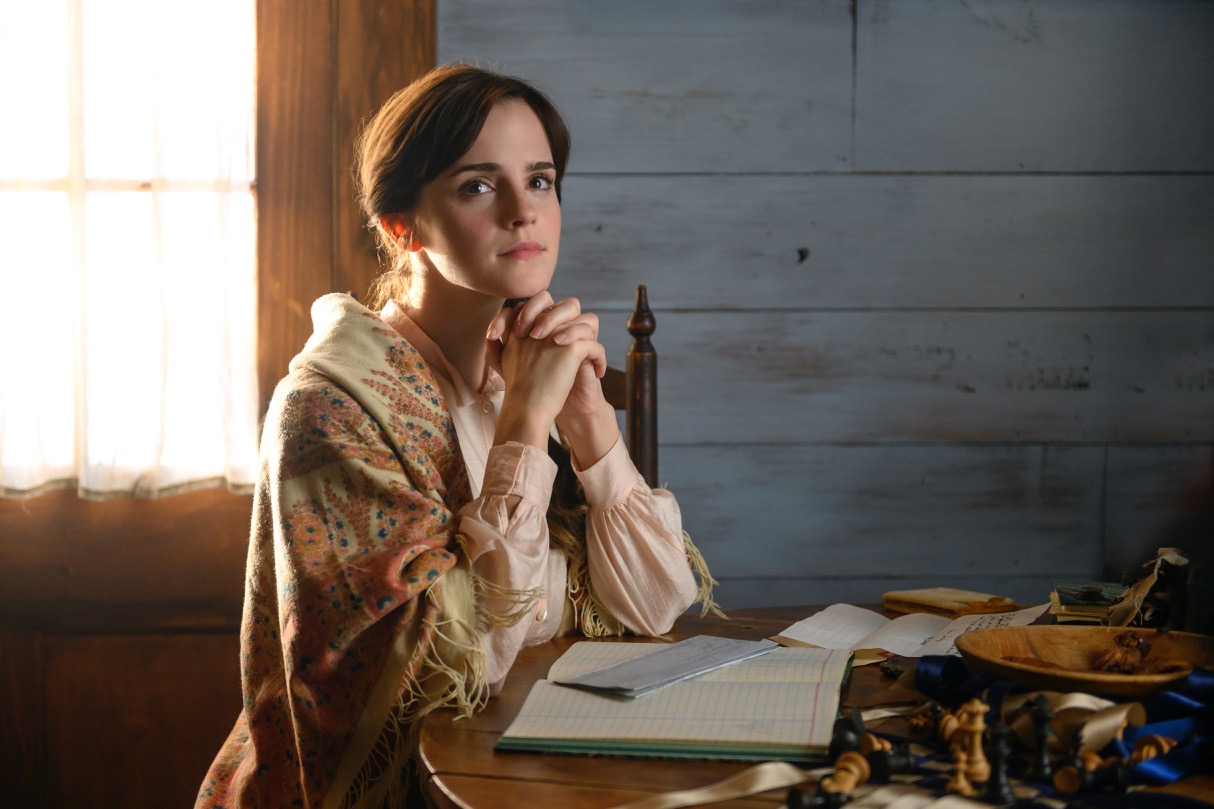
Emma Watson as Meg in Little Women. Photo: Wilson Webb. © 2019 CTMG, Inc. All rights reserved.
The movie opens with Jo at twenty-two, on her own in New York City and peddling her penny dreadful stories to a newspaper editor (Tracy Letts) who unloads his red pen along with some storytelling advice: short and spicy; no preaching; all good women marry or die in the end. Eldest March sister and number-one beauty Meg (Emma Watson) is struggling to enjoy love in a cottage with twin babies, having forsaken a more financially judicious match for the humble Mr. Brooke (James Norton). High-stepping in Paris with Aunt March, only canny, impetuous Amy (Florence Pugh) appears to be having any fun, though she too bears an essential displacement, lonely but poised in the face of choices more limited than a clannish, freewheeling girlhood led her to expect.
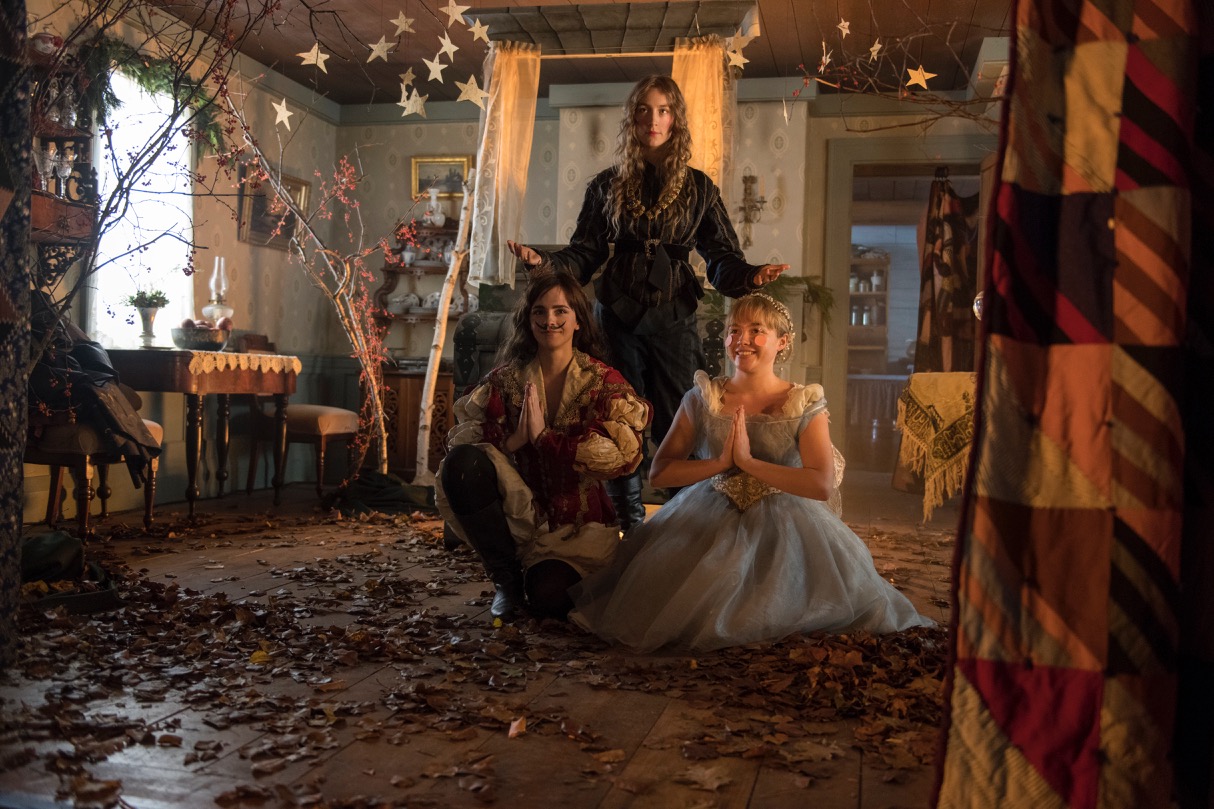
Saoirse Ronan as Jo, Florence Pugh as Amy, and Emma Watson as Meg in Little Women. Photo: Wilson Webb. © 2019 CTMG, Inc. All rights reserved.
In flashback, the sisters—rounded out by a Beth (Eliza Scanlen) so ephemeral a light rain might wash her away—crowd and clamor atop one another, their voices knitting and diverging through bouts of play, make-believe, and combat. The Civil War backdrop is effaced but for a few awkward gestures, and though Gerwig includes Marmee’s extraordinary confession to being angry every day of her life, she pivots away from the novel’s emphasis on the matriarch’s struggle to bury her rage, check her temper, perform a serenity she doesn’t feel. Gilded scenes of dress up and debutante balls nest between those depicting the end of halcyon togetherness, and the former are more poignant for it. (Though for me the distraction of Pugh and Ronan playing twelve- and fifteen-year-olds, respectively, was not small.) Somewhat lost in this approach is the fate of Beth, the pure, “submissive spirit” of feminine goodness Alcott seems to both revere and abhor. Beth’s slow fade does less subtle thematic work here, her death functioning mainly to trigger Jo’s abandonment of the lucrative genre fluff her suitor/mentor Professor Bhaer (Louis Garrel) disdains in order to write what she knows.
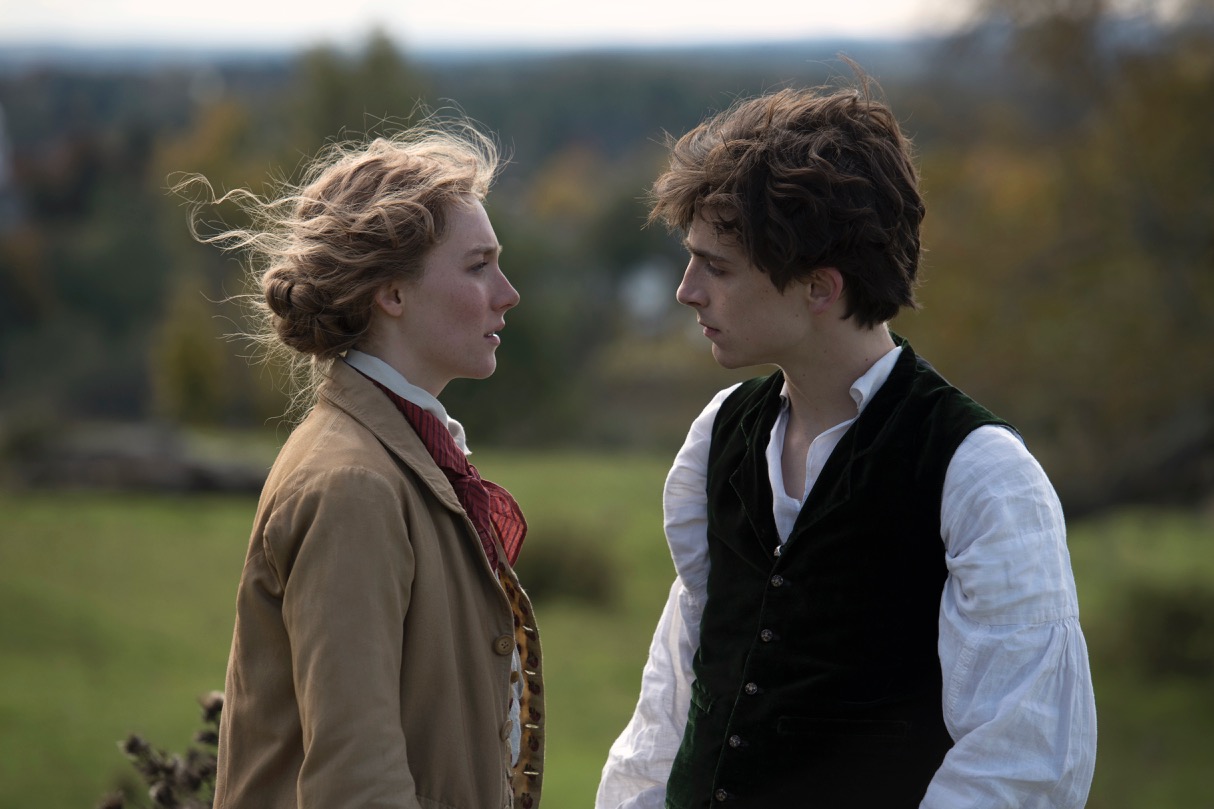
Saoirse Ronan as Jo and Timothée Chalamet as Laurie in Little Women. Photo: Wilson Webb. © 2019 CTMG, Inc. All rights reserved.
Though the scene plays beautifully, Jo’s rejection of Laurie (a heart-shaped balance of smug and sincere in Chalamet’s rendering) is also less momentous. Gerwig maintains the import of the decision—Jo knows herself, even then—while framing the experience as just one in a lifelong battle for self-determination. Another comes when Jo confesses her loneliness to Marmee, feeling lost without her sisters as she forges a path to autonomy. Gerwig plumbs parallels in the way that Jo and Amy in particular negotiate varied ambitions, a twinning that most adaptations have overlooked. “I mean to make the most of every chance that comes,” Amy tells Jo in the novel. “You can go through the world with your elbows out and your nose in the air, and call it independence, if you like. That’s not my way.”
A triumph of this Little Women is its vision of independence as a means for woman’s entry into society, and not the opposite. Vital, bodied performances from Pugh and Ronan further the sense of characters who will exercise their will not on the hidden hills to which “independent” women are typically consigned but in the world, who will pass into womanhood not just still living but alive. A more radical thing, then and now, than it might seem.
Michelle Orange is the author of This Is Running for Your Life: Essays and the forthcoming nonfiction book Pure Flame.